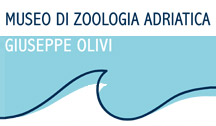The Building and Its History

The 18th-century Palazzo Grassi was built on the Fondamenta (quay) of the Vena Channel, between 1703 and 1714, realizing a project of the architect Andrea Tirali. The building was commissioned by the Grassi family, rich and potent Chioggia’s merchants who will later become patricians and will sit in the Maggior Consiglio (the highest political institution of the Venice Serenissima Repubblica).
At the beginning of nineteen century, Palazzo Grassi was owned by Zadra, a man from Pontelongo (Padova) who, in 1851, sold it to the bishop Jacopo Dè Foretti. The bishop bequeathed it to the town hall, being Mayor Antonio Naccari, with the intent to turn the palace into a hospital. However, as a fire seriously damaged the municipality building all the municipal offices were provisionally transferred to Palazzo Grassi, that, in the late 1855, eventually become a hospital. In 1941 and 1947 two more recent parts, the south and east wings, were annexed to the main historical building. Palazzo Grassi served as a hospital for a long time and only in the late 1990s the City of Chioggia, with the support of Veneto Region, funded its renovation and modified its use designation, making of it a place devoted to education and training. In 2001, an agreement between the University of Padova and the Municipality of Chioggia, which made this palace the location of a Master Degree in Marine Biology.
The supervisor of Palazzo Grassi is Prof. Laura Airoldi.
